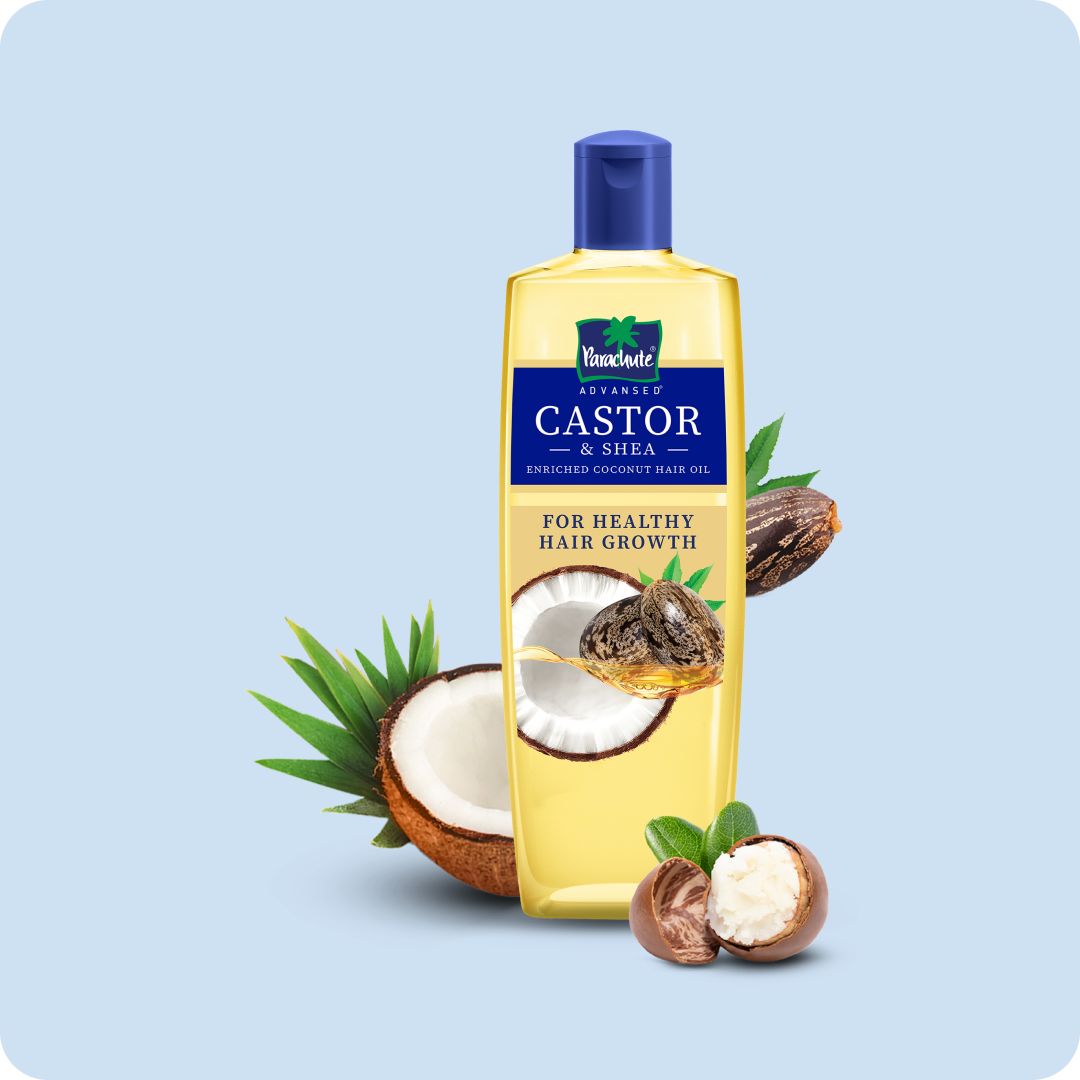
Back
6 Steps Hair Care Routine for Healthy Hair

May 7, 2024

9 min

Biswajit Singh
A hair care routine is an integral part of self-care practices, which can be as indulgent or simple as you want it to be. Creating a functional and best hair care routine is all about promoting hair growth and maintaining its overall health and resilience. Moreover, regular care helps maintain the balance of moisture, enhances its natural shine, and, in turn, reduces hair breakage.
No matter whether you are flaunting curls, waves or straight locks, having a structured, healthy hair routine can make a world of difference. Owing to each individual’s unique hair type, lifestyle, and environmental factors, their hair needs may differ greatly. This makes it integral to tailor a simple hair care routine for your tresses that you follow devoutly to ensure their health.

Understanding Your Hair Type
But where do you even start? Your answer lies in understanding your hair type. Each type has some distinct characteristics that require specific care. This will help you determine which products may work for you and what hair care routine steps to include in your ritual to get the most out of them.

Straight Hair: This hair type typically appears flat and tends to get oily quite quickly. It can be fine, medium or coarse. Fine, straight hair may need volumising products and gentle handling to avoid breakage.
Wavy Hair: A mix between straight hair and curly hair, this hair type features an S-shape bend that may vary in tightness. Wavy hair can be prone to frizz. This means it needs products that provide moisture while defining the waves without weighing them down.
Curly Hair: This hair type features tight and distinct ringlets of hair strands, with variations like looser spirals or tight coils. There is a whole typing system for understanding curls (think 2A to 4C). Such hair types crave moisture and gentle detangling to minimise frizz.
Moreover, your hair can be further divided into two brackets: low porosity or high porosity. While high-porosity hair absorbs and loses moisture quickly, the latter has a tightly packed cuticle, which means it does not readily absorb moisture or treatments.
Steps to Building a Healthy Hair Routine
Now that you know your hair type, it's time to craft your hair care routine steps. Here are the elements to get your journey started:
Step 1: Embrace the Power of Hair Oils
You might have heard this time and time again from your elders that hair oiling is one of the best things for your hair. And well, it is! A regular hair-oiling routine can potentially enhance your hair's health. It helps nourish your scalp, promote hair growth, and even combat breakage by providing moisture to your dry hair. You can do so by massaging your favourite hair oil on the scalp until the hair ends, leaving it on for at least 30 minutes before washing. Repeat this every week or biweekly for shinier and more healthy hair.
Step 2: Shampoo and Condition the Correct Way
Don’t wash your hair daily. Frequent and over-shampooing can strip your hair of its natural oils, leaving it prone to frizz and damage. While oily hair may require a wash every other day, dry or oily hair types can go about 5 days to a week between washes.
However, when you do, use a sulphate free shampoo that suits your hair type. Focus on lathering the scalp; make sure to avoid scrubbing the lengths. Once washed, take the recommended amount of conditioner for your hair type and apply it primarily to the mid-lengths and ends. Conditioner is key for relaying moisture to your locks. Gently detangle your hair with your fingers, and remember to avoid the scalp to prevent buildup as well as greasiness. Similarly, leave it on for a few minutes and wash your hair thoroughly with cool water to ensure no residue is left behind.
Step 3: Protect Your Hair Like a Pro
Post-wash care is an equally important hair care routine step. Once you are done washing your hair, there are some things that you might keep in mind to combat the aftereffects of daily wear and tear (literally). The first thing to do post-wash is dry-dab your hair with a microfibre towel. If you are inclined to use heat styling tools, then your utmost priority should be to apply a heat protectant spray before you do so. You may also benefit from products like leave-in conditioners and serums. These offer long-lasting moisture and protection throughout the day. Such products address concerns like dry, dull and frizzy hair and can be used on damp or dry hair to add shine and smoothness.
Step 4: Deep Conditioning is the Answer
Often overlooked, hair masks can be your best bet for maintaining a healthy hair routine. These provide intensive, deep conditioning and repair to your hair strands. The great thing about hair masks is that you can whip up some yourself with the ingredients you love the most for your hair type and needs. All you need to do later is section your hair into parts and apply the mask. Here, focus on the lengths to the ends. Leave it on for about 10–30 minutes and rinse it out thoroughly.
Step 5: Trim Your Way to Healthier Hair
Regularly trimming your hair is quite essential for maintaining a healthy mane. Doing so every 6–12 weeks helps your hair get rid of split ends and prevents breakage from travelling up the hair shaft, which can stand to cause more damage. Moreover, if you want to grow your hair out, regular trims can make your hair manageable and appear healthier by eliminating damaged sections.
Step 6: The Importance of Remaining Consistent
Once all the above things are done, all that remains is being consistent. Imagine your healthy hair care routine as a series of positive influences on your hair’s form. Each time you follow the processes to the T, you inevitably contribute to a healthier scalp and stronger strands.
While doing so, look out for any changes in your hair texture, breakage, or greasiness. These can be signs that your routine might need some tweaking. Adjust your routine accordingly. Nurturing your body and your hair and investing time in them can help you achieve beautiful, long-lasting results. Remember, the goal is to keep it simple so that you never miss a day to care for things that truly matter to you!
Besides, if you’re on the lookout for hair oils for dry, frizzy hair, we’re here to help with a variety of options. Whether your goal is to achieve smooth, long, healthy hair or to manage frizz or prevent damaged, Parachute Advansed has just what you need to bring out the best in your hair.
DISCLAIMER:
Our team picks and curates content we think you will like. Opinions expressed within the content are the creator’s views and do not reflect the opinions and beliefs of the website or that of Marico Limited.

SHARE NOW






Benefits of Vitamin E for Your Hair
Explore the top 5 benefits of vitamin E for hair, including promoting scalp health, boosting growth, reducing greying, and improving hair quality. Learn how to add vitamin E to your routine for healthier, stronger hair.

Feb 23, 2023

10 mins

SHARE NOW






Aloe Vera for Scalp: The Magical Benefits of Aloe Vera Hair Oil for Scalp
Experience the wonders of aloe vera for scalp health. Learn how aloe vera hair oil soothes, nourishes, and promotes a healthy scalp for stronger, shinier hair.

Feb 23, 2023

10 mins

SHARE NOW

















